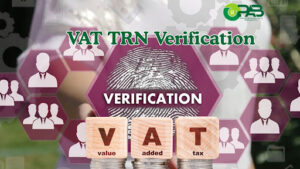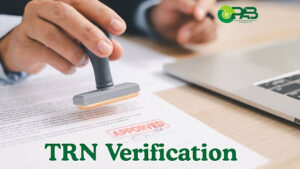If you’re running a business in the UAE, filing your VAT returns is something you can’t afford to miss.
It might sound complicated at first, but once you understand the basics, it becomes just another part of running a smart, compliant business.
Read on to discover everything you need to know about VAT returns in UAE, from what they are and who needs to file, to how the process works and what happens if you don’t file on time.
What Is a VAT Return in the UAE and Why Does It Matter?
A VAT return is a form you submit to the Federal Tax Authority (FTA) to report how much VAT you collected and paid during a specific period. Think of it like a report card for your business taxes.
When you sell goods or services, you usually charge a 5% VAT. You may also pay VAT on purchases from other businesses. In your VAT return, you show:
- ✅ VAT you collected from customers (output tax)
- ✅ VAT you paid on business purchases (input tax)
If you collected more than you paid, you owe the difference to the FTA. If you paid more than you collected, you can claim a refund.
Who Needs to File VAT Returns in the UAE?
Any business that is registered for VAT in the UAE is required to file VAT returns, even if you didn’t make any sales during that period.
Here’s who typically needs to file:
- ✅ Companies with taxable supplies over AED 375,000 per year (mandatory)
- ✅ Companies voluntarily registered with taxable supplies over AED 187,500
- ✅ Freelancers, consultants, eCommerce sellers, and service providers who meet the threshold
📚 Also read: FTA VAT Registration in the UAE: A Guide for Business Owners
When Are VAT Returns Due in the UAE?

VAT returns are usually filed every quarter (every 3 months), but some businesses file monthly depending on their setup.
The due date is always:
28th day of the month following the end of your tax period
For example, if your tax period ends on March 31, your VAT return is due by April 28.
Missing the deadline could lead to penalties, which can add up fast. So it’s a good idea to mark these dates on your calendar or use reminders.
How to File VAT Returns in UAE Using the EmaraTax Platform
The FTA has a user-friendly system called EmaraTax, where all VAT return filing takes place. It’s all online and doesn’t take long once you have everything ready.
Step-by-Step Guide to Filing a VAT Return
- ✅ Log in to your EmaraTax account.
- ✅ Go to “VAT” and click “VAT 201 – VAT Return Form.”
- ✅ Fill in your sales (output tax) and purchases (input tax).
- ✅ Double-check your figures and supporting documents.
- ✅ Submit the form and take note of your PRN (Payment Reference Number).
📚 Also read: Smart Business Finance Tips and Strategies
What Goes into the VAT Return Form?
The VAT 201 form includes details about:
- ✅ Standard-rated supplies
- ✅ Zero-rated and exempt supplies
- ✅ Imports
- ✅ Adjustments and corrections
- ✅ Input VAT you’re reclaiming
You’ll also need to declare whether your return is based on accrual or cash accounting. It’s important to be accurate, as mistakes can delay processing or trigger penalties.
What Happens After You Submit a VAT Return?
Once you file, you’ll receive a confirmation. Then, it’s time to make your payment (if needed).
Here’s what happens:
- ✅ If you owe tax, pay it using your PRN.
- ✅ If you overpaid VAT, you can request a refund.
- ✅ If you made a mistake, you can file a Voluntary Disclosure to correct it.
Make sure to keep all your invoices and records for at least 5 years in case the FTA wants to review them.
How to Pay VAT in the UAE
After submitting your return, you’ll need to settle any balance due. The FTA offers several payment options:
- ✅ e-Dirham or debit/credit cards through the EmaraTax portal
- ✅ Local bank transfer using GIBAN (a unique bank account number for tax payments)
It’s best to pay well before the deadline to avoid any technical delays.
How to Claim VAT Refunds in the UAE
If your input VAT is greater than your output VAT, you can apply for a refund. This often happens if:
- ✅ You made large purchases
- ✅ You had few or no sales during the period
- ✅ You’re in a zero-rated industry like exports or education
To apply, select the refund option during your VAT return filing in EmaraTax. The FTA usually processes refunds within a few weeks.
Should You Hire a Tax Agent for VAT Returns?
You don’t necessarily need to hire a tax agent, but working with a registered tax agent can be a big help, especially if you:
- ✅ Are new to VAT
- ✅ Have complicated transactions
- ✅ Want to avoid errors
A tax agent can file returns on your behalf, keep your records in order, and deal with the Federal Tax Authority (FTA) if needed.
If you’re looking for trusted, reliable, and affordable accounting services to help with your VAT returns, consider Outsource Prime Accountants and Bookkeepers (OPAB).
OPAB offers smart and transparent accounting solutions tailored for growing businesses in Dubai.
With years of experience, they ensure that your books, taxes, and reports are handled efficiently so you can focus on growing your business.
Whether you’re new to VAT or managing complex transactions, OPAB is a trusted partner in handling all your accounting needs.
📚 Also read: How to Register for Corporate Tax in UAE: 2025 Guide
Keeping Records for VAT Filing and Audits
The FTA requires businesses to keep:
- ✅ VAT invoices (sales and purchases)
- ✅ Credit notes and debit notes
- ✅ Import and export documentation
These documents should be stored for at least 5 years. Using accounting software or cloud storage can make things easier, especially when it’s time to file again or during an audit.
Tips to Stay VAT Compliant Year-Round
Here’s how to make sure your business stays on track:
- ✅ Review and reconcile your books monthly
- ✅ Use accounting software to automate tasks
- ✅ Set calendar alerts for due dates
- ✅ Consult a tax expert if you’re unsure about anything
📚 Also read: Effective Marketing Management
Simplify Your VAT Returns with Expert Help
Filing VAT returns in the UAE doesn’t have to be overwhelming. Once you understand the basics: what to report, when to file, and how to use the EmaraTax portal, it becomes a routine task that helps keep your business running smoothly and legally compliant.
If you ever feel unsure or simply want peace of mind, getting expert support is a smart move.
For expert accounting and bookkeeping services, reach out to Outsource Prime Accountants and Bookkeepers (OPAB). We make VAT registration, return filing, and compliance simple and stress-free.
Have questions or need help with VAT setup and compliance? OPAB is here to assist UAE businesses like yours. Reach out to us today!
Frequently Asked Questions About VAT Returns in UAE
What is the VAT return in the UAE?
A VAT return is a document submitted to the UAE’s tax authority to report the amount of VAT a business has collected and paid during a specific period. It helps determine whether the business owes additional tax or is due for a refund. Every registered business must submit it on time to stay compliant. This process ensures transparency and proper tracking of tax activities.
How to do VAT return filing in UAE?
You can file a VAT return in the UAE through the EmaraTax portal. Simply log in, complete the VAT 201 form with your sales and purchase details, double-check the figures, and submit the form. After that, pay any VAT due using your assigned payment reference number. It’s quick if you keep your records organized.
How to get VAT refund in UAE?
If you paid more VAT than you collected, you may be eligible for a refund. You can request this during your VAT return filing by selecting the refund option. The tax authority will review your application and, if approved, transfer the refund to your bank account. Keep all supporting documents ready in case of review.
What is the due date for VAT return in UAE?
VAT returns in the UAE are typically due on the 28th day of the month following the end of your tax period. Depending on your setup, this could be monthly or quarterly. Missing the deadline can result in penalties, so it’s important to file and pay on time.









